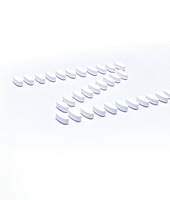Advertisement
Zinc
The fact that the alphabet ends in z doesn’t mean it’s appropriate to leave zinc, a most important mineral, to the end of your supplement regimen. Today there is more to know about zinc than you may think. Zinc is an essential mineral that is found in almost every cell of the body. Involved in … Continued

The fact that the alphabet ends in z doesn’t mean it’s appropriate to leave zinc, a most important mineral, to the end of your supplement regimen. Today there is more to know about zinc than you may think.
Zinc is an essential mineral that is found in almost every cell of the body. Involved in the proper functioning of approximately 100 enzymes, zinc is a key component in a healthy body. More specifically, zinc supports a healthy immune system, is involved in DNA synthesis, and is required for proper wound healing and for the ability to taste and smell.
Perhaps the most important tidbit to remember about zinc is that it’s required for the development and activation of T-lymphocytes white blood cells that help fight infection. Therefore, ensuring adequate levels of zinc in the body can help stave off the common cold and make sure wounds heal quickly.
Sources of Zinc
Zinc is found in a wide variety of foods. Next time you’re looking in the fridge reach for whole grains, nuts, beans, oysters, poultry, or red meat to find some zinc.
How do you know if you’re getting enough? Those who do not have a diet high in animal protein may not be absorbing enough zinc, as phytates in whole grains and legumes can decrease zinc absorption. You’re at risk of having a zinc deficiency if you have inadequate caloric intake or digestive disease; if you’re pregnant, a vegetarian, or an alcoholic; or if you get a lot of iron through your diet.
Iron consumption is a problem, as many processed foods are fortified with iron in an attempt to address iron deficiency anemia, a serious public health problem. As researchers have found that large amounts of iron in supplements (greater than 25 milligrams) affect zinc absorption when tested in solutions, the amount of iron we eat is worth considering. Of note, this interaction can be avoided by taking iron supplements between, rather than with, meals.
What is an adequate level of zinc? The Dietary Reference Intake (DRI) for zinc is 11 mg per day for adult men and eight mg for adult women.
Zinc in the News
Scientists are continually learning more about zinc. Let’s investigate some of their discoveries:
- Zinc supplementation (10 mg/day) reduced the incidence of pneumonia by 41 percent in children (reported in the British Medical Journal, June 2002).
- Zinc supplementation reduced the incidence of diarrhea in children (reported in the Journal of Trace Elements in Medicine and Biology, June 1997).
- Patients with pressure ulcers experienced significant improvement with a supplement that included zinc (reported in Journal of Wound Care, September 2004).
For proper growth and development, a healthy body, and the ability to fight disease, don’t let zinc be last on your alphabet of supplements. Zinc for health it’s elemental!
Signs of Zinc Deficiency
- hair loss
- diarrhea
- eye and skin lesions
- loss of appetite
- delayed sexual maturation
- impotence
- growth retardation




